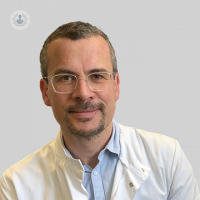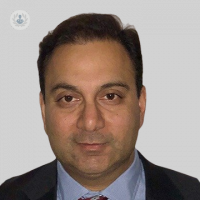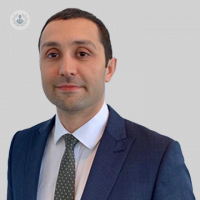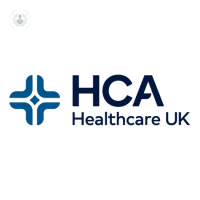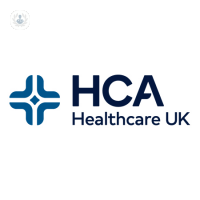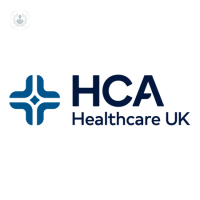What is oesophageal cancer?
Oesophageal cancer is a type of cancer that affects the oesophagus (gullet or food pipe), which is the long tube that carries food from the throat to the stomach. It occurs when abnormal cells grow in an uncontrollable way. It is more common in people in their 60s and 70s and occurs in men more than women.
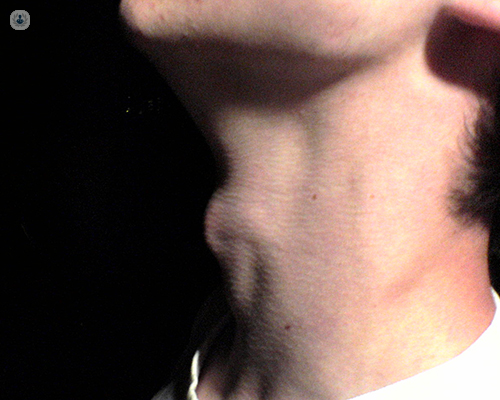
What are the symptoms of oesophageal cancer?
The symptoms of oesophageal cancer include:
- Difficulty in swallowing (dysphagia) – this feels like a pain or burning sensation in the throat or chest
- Indigestion – occurs when acid from the stomach goes back into the oesophagus
- Heartburn – which is a burning chest pain after eating
- Weight loss – follows as a result of not being able to eat food because of the pain
- Pain in the throat - and behind the breastbone
- A persistent cough
- Dark poo – faeces may be almost black if the oesophagus bleeds from cancer
What are the causes of oesophageal cancer?
The exact cause is unknown but persistent gastro-oesophageal reflux disease (GORD), smoking, excessive alcohol consumption, being overweight and having an unhealthy diet are risk factors for the disease.
How is oesophageal cancer diagnosed?
The cancer is diagnosed using an endoscopy, which allows the doctor to see inside the oesophagus. The small, thin tube with a camera and light on the end is passed into the mouth and down towards the stomach. Sample tissues are removed so that they can be checked under a microscope.
What are the treatments for oesophageal cancer?
The treatment plan for oesophageal cancer depends on where in the oesophagus the cancer is and whether it is a squamous cell carcinoma or an adenocarcinoma.
If it is diagnosed during an early stage, it may be possible to cure it with chemoradiotherapy or by treating with chemotherapy to first shrink it, followed by surgical removal of the affected area of the oesophagus.
If the cancer is diagnosed at a later stage, cure is often not achievable but chemotherapy, sometimes in combination with targeted therapies such as immunotherapy, can be used to keep cancer under control and relieve symptoms
What’s the outlook for oesophageal cancer?
The outlook depends on the stage of oesophageal cancer. It depends on how far the disease has spread, the age, and the general health of the patient.
04-28-2017 10-25-2023Oesophageal cancer
Professor Marco Gerlinger - Medical oncology
Created on: 04-28-2017
Updated on: 10-25-2023
Edited by: Conor Lynch
What is oesophageal cancer?
Oesophageal cancer is a type of cancer that affects the oesophagus (gullet or food pipe), which is the long tube that carries food from the throat to the stomach. It occurs when abnormal cells grow in an uncontrollable way. It is more common in people in their 60s and 70s and occurs in men more than women.

What are the symptoms of oesophageal cancer?
The symptoms of oesophageal cancer include:
- Difficulty in swallowing (dysphagia) – this feels like a pain or burning sensation in the throat or chest
- Indigestion – occurs when acid from the stomach goes back into the oesophagus
- Heartburn – which is a burning chest pain after eating
- Weight loss – follows as a result of not being able to eat food because of the pain
- Pain in the throat - and behind the breastbone
- A persistent cough
- Dark poo – faeces may be almost black if the oesophagus bleeds from cancer
What are the causes of oesophageal cancer?
The exact cause is unknown but persistent gastro-oesophageal reflux disease (GORD), smoking, excessive alcohol consumption, being overweight and having an unhealthy diet are risk factors for the disease.
How is oesophageal cancer diagnosed?
The cancer is diagnosed using an endoscopy, which allows the doctor to see inside the oesophagus. The small, thin tube with a camera and light on the end is passed into the mouth and down towards the stomach. Sample tissues are removed so that they can be checked under a microscope.
What are the treatments for oesophageal cancer?
The treatment plan for oesophageal cancer depends on where in the oesophagus the cancer is and whether it is a squamous cell carcinoma or an adenocarcinoma.
If it is diagnosed during an early stage, it may be possible to cure it with chemoradiotherapy or by treating with chemotherapy to first shrink it, followed by surgical removal of the affected area of the oesophagus.
If the cancer is diagnosed at a later stage, cure is often not achievable but chemotherapy, sometimes in combination with targeted therapies such as immunotherapy, can be used to keep cancer under control and relieve symptoms
What’s the outlook for oesophageal cancer?
The outlook depends on the stage of oesophageal cancer. It depends on how far the disease has spread, the age, and the general health of the patient.


Oesophageal cancer: what is it and can it be treated?
By Dr Aathavan Loganayagam
2025-01-20
Oesophageal cancer is a rare type of cancer that grows in your oesophagus (the 'food pipe', or tube) that leads from the throat to the stomach. The earlier oesophageal cancer is diagnosed and treated, the better the outcome. So, how is this difficult and challenging type of cancer dealt with? Dr Aathavan Loganayagam, a leading gastroenterologist, presents a concise guide about oesophageal cancer. See more


Precancerous lesions of the gullet (oesophagus): diagnosis and treatment
By Mr Cheuk Bong Tang
2025-01-20
Precancerious lesions are asymptomatic but that doesn't mean they're not serious. We spoke to Mr Cheuk Bong Tang to find out about the condition that causes them, Barrett's oesophagus. He let us know how dangerous precancerous lesion of the gullet really are, how HALO treatment helps, and how patients should prepare for it. See more
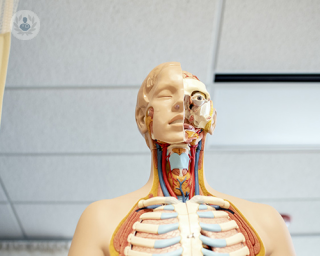

Oesophageal cancer: early signs and survival rate
By Mr Krishna Moorthy
2025-01-20
Persistent acid reflux is a risk factor in developing oesophageal cancer. We've asked one of our top surgeons Mr Krishna Moorthy to explain the early signs of the disease, the survival rate and whether it is curable. See more


Understanding GI tract cancers: Diagnosis to treatment
By Dr Cheng Boon
2025-01-19
The intricate network of the gastrointestinal (GI) tract, responsible for digestion and nutrient absorption, is susceptible to a spectrum of cancers. These malignancies can arise anywhere along the GI tract, from the oesophagus to the rectum, presenting diverse challenges in diagnosis and management. Understanding the nuances of GI tract cancers, including their types, symptoms, risk factors, and treatment modalities, is paramount for effective intervention and improved outcomes. In his latest online article, Dr Cheng Boon gives us his insights. See more
Experts in Oesophageal cancer
-
Professor Muntzer Mughal
SurgeryExpert in:
- Oesophageal cancer
- Gastric cancer surgery
- Gallbladder surgery
- Dysphagia
- Tracheoesophageal fistula (TOF)
- Hiatal hernia surgery
-
Mr Krishna Moorthy
SurgeryExpert in:
- Acid reflux
- Bariatric surgery
- Oesophageal cancer
- Gastric cancer surgery
- Hernia
- Laparoscopy
-
Mr Ashish Rohatgi
SurgeryExpert in:
- Oesophageal cancer
- Gastric cancer surgery
- Gallstones
- Acid reflux
- Hiatal hernia
- Hernia
-
Mr P S Jambulingam
SurgeryExpert in:
- Weight loss
- Hiatal hernia surgery
- Gallstones
- Inguinal hernia
- Gastric cancer surgery
- Oesophageal cancer
-
Mr Nima Abbassi-Ghadi
SurgeryExpert in:
- Acid reflux
- Oesophageal cancer
- Gallstones
- Hernia
- Endoscopy
- Laparoscopy
- See all

Platinum Medical Centre (HCA)
Platinum Medical Centre (HCA)
15-17 Lodge Road, NW8 7JA
No existe teléfono en el centro.
By using the telephone number provided by TOP DOCTORS, you automatically agree to let us use your phone number for statistical and commercial purposes. For further information, read our Privacy Policy
Top Doctors

The Wellington Hospital - part of HCA Healthcare
The Wellington Hospital - part of HCA Healthcare
Wellington Hospital South Bldg, 8A Wellington Pl, NW8 9LE
No existe teléfono en el centro.
By using the telephone number provided by TOP DOCTORS, you automatically agree to let us use your phone number for statistical and commercial purposes. For further information, read our Privacy Policy
Top Doctors

The Harley Street Clinic - part of HCA Healthcare
The Harley Street Clinic - part of HCA Healthcare
35 Weymouth Street, London. W1G 8BJ
No existe teléfono en el centro.
By using the telephone number provided by TOP DOCTORS, you automatically agree to let us use your phone number for statistical and commercial purposes. For further information, read our Privacy Policy
Top Doctors
-
Platinum Medical Centre (HCA)
15-17 Lodge Road, NW8 7JA, Central LondonExpert in:
- Digestive
- Cancer
- Orthopaedic surgery
- Diagnostic Imaging
- Spine
- Physiotherapy
-
The Wellington Hospital - part of HCA Healthcare
Wellington Hospital South Bldg, 8A Wellington Pl, NW8 9LE, Central LondonExpert in:
- Digestive
- Cardiology
- Orthopaedic surgery
- Orthopaedic spinal surgery
- Intensive care
- Spine
-
The Harley Street Clinic - part of HCA Healthcare
35 Weymouth Street, London. W1G 8BJ, Central LondonExpert in:
- Cancer
- Head and neck cancer
- Cardiology
- Intensive care
- Diagnostic Imaging
- Women’s health
- See all
- Most viewed diseases, medical tests, and treatments
- HHT (Hereditary Haemorrhagic Telangiectasia)
- Snoring
- Polysomnography (sleep study)
- Immunotherapy
- Nystagmus
- CAR-T cells
- Hormone therapy
- Migraine
- Hodgkin's lymphoma
- Weight loss injections
